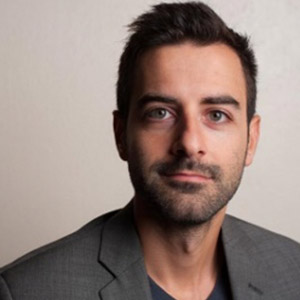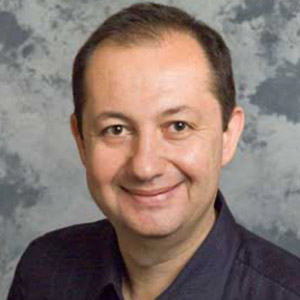Acceleration Funds 2020-2022
Project 1: Molecular Scavenger Engineering to Treat Visceral Obesity
Abstract
Obesity is a surging health problem in a modernized society. However, there remain poor solutions to treat obesity, especially the more metabolically detrimental viscera fat. Here we propose to address this urgent medical need by a strategy different from any known approach. We develop a scavenger material that specifically targets visceral fat and potently reduces the depot size, resulting in striking protection from visceral obesity with improved whole-body metabolism. We propose to optimize the material with improved efficacy and safety of treating visceral obesity and further understand the mechanism of inhibiting adipocyte development. Our study is envisioned to incite a paradigm shift in obesity research, both scientifically and clinically.
Principal Investigators

Kam W. Leong is the Samuel Y. Sheng Professor of Biomedical Engineering and Systems Biology at Columbia University. He received his PhD in Chemical Engineering from the University of Pennsylvania and joined the faculty in the Johns Hopkins School of Medicine in 1986, and then Duke University in 2006. He moved to Columbia University in 2014, focusing on research directions of nonviral gene editing, oral delivery of biologics, biomaterials-mediated inflammation modulation, and iPSC-based microphysiological systems. He has published ~400 peer-reviewed research manuscripts with ~51,000 citations and an h-index of 117, and holds more than 60 issued patents. His work has been recognized by a number of awards, including the Young Investigator Research Achievement Award of the Controlled Release Society, the Society for Biomaterials Clemson Award for Applied Research, Lifetime Achievement Award of CAS on Nanotechnology and Nanomedicine, and CAB Global Biomaterials Leadership Award. He is the Editor-in-Chief of Biomaterials, and a member of Academia Sinica, the USA National Academy of Inventors and the USA National Academy of Engineering.

Li Qiang, Assistant Professor in the Department of Pathology and Cell Biology at Columbia University, graduated from Peking University in 2001 and received his doctoral degree from Boston University School of Medicine in 2007. His laboratory studies the molecular pathways underlying the pathophysiology of obesity, diabetes, and aging, with the ultimate goal to develop safe and efficient interventions to improve metabolism and human health. Dr. Qiang has published in Cell, Cell Metabolism, JCI, ACS Nano, J. of Hepatology, Cell Reports, Diabetes, Nature, Nature Medicine, Molecular Metabolism etc. His finding of brown remodeling of white fat was among the year’s top 10 notable advances in metabolism. He is a co-inventor of an obesity patch for local obesity treatment, which was reported by major medias worldwide. Dr. Qiang has also discovered a selectively-targeting mechanism for developing the next generation diabetes drug without side effects. Most recently, Dr. Qiang’s team, in collaboration with others, has identified a novel therapeutic target, PU.1, for liver metabolic diseases including nonalcoholic steatohepatitis (NASH). Dr. Qiang was the recipient of the highest graduate student award - Russek Student Achievement Award from Boston University School of Medicine, NIH career development award with a perfect score, and Kern Lipid Conference Early Investigator Award.
Project 2: Optimizing Cerebral Autoregulation in Patients with Acute Ischemic Stroke
Abstract
The ability of the cerebral vasculature to regulate cerebral blood flow in response to rapid changes in blood pressure is termed dynamic cerebral autoregulation. Cerebral autoregulation is impaired in a number of neurological disorders, including traumatic brain injury, subarachnoid hemorrhage, acute ischemic stroke (AIS), and chronic carotid stenosis. Loss of autoregulation can lead to strokes through either hyperperfusion causing blood-brain barrier compromise and brain hemorrhage, or hypoperfusion causing ischemic strokes. Recent small clinical studies have demonstrated the utility of cerebral autoregulation monitoring approaches in personalizing blood pressure management after AIS and subarachnoid hemorrhage. However, the utility of this approach has not been tested with non-invasive methods outside of an intensive care unit. In addition, advanced mathematical modeling may offer more rapid and precise ways of identifying the optimal range of blood pressure for individuals with cerebrovascular disease. For this STAR pilot study, we will engage engineering expertise to implement advanced mathematical methods using non-invasive bedside tools to optimize cerebral autoregulation in patients with AIS who are not admitted to the intensive care unit. Our long-term goal is to test this personalized approach in a clinical trial of personalized vs standard blood pressure targets after AIS.
Principal Investigators

Prof. Ioannis A. Kougioumtzoglou received his five-year Diploma in Civil Engineering from the National Technical University of Athens (NTUA) in Greece (2007), and his M.Sc. (2009) and Ph.D. (2011) degrees in Civil Engineering from Rice University, TX, USA. He joined Columbia University in 2014, where he is currently an Associate Professor in the Department of Civil Engineering & Engineering Mechanics. Prof. Kougioumtzoglou has published more than 120 technical papers in peer-reviewed International Journals and Conference Proceedings, and was chosen in 2018 by the National Science Foundation (NSF) to receive the prestigious CAREER Award, which recognizes early stage scholars with high levels of promise and excellence. He is also the 2014 European Association of Structural Dynamics (EASD) Junior Research Prize recipient “for his innovative influence on the field of nonlinear stochastic dynamics”. Prof. Kougioumtzoglou is an Editorial Board Member of the following Journals: Mechanical Systems and Signal Processing, Probabilistic Engineering Mechanics, and International Journal of Non-Linear Mechanics. He is also a co-Editor of the Encyclopedia of Earthquake Engineering (Springer), an Associate Editor for the ASCE-ASME Journal of Risk and Uncertainty in Engineering Systems, and has served as a Guest Editor for several Special Issues in International Journals. He has held Visiting Professor positions in several universities worldwide, has served in the scientific and/or organizing committees of many international technical conferences, and has co-chaired the 13th International Probabilistic Workshop (IPW 2015). Prof. Kougioumtzoglou is a member both of the American Society of Civil Engineers (M.ASCE) and the American Society of Mechanical Engineers (M.ASME), while he currently serves as a member of the ASCE Engineering Mechanics Institute (EMI) committees on Dynamics and on Probabilistic Methods. He is a Licensed Professional Civil Engineer in Greece, and a Fellow of the Higher Education Academy (FHEA) in the UK. Prof. Kougioumtzoglou and his research group develop primarily analytic and numerical stochastic methodologies for response analysis, reliability assessment, and optimization of complex engineering systems and structures under the presence of uncertainties. These methodologies lead eventually to robust and efficient design of dynamic systems ranging from the nano-scale (e.g. nano-mechanical oscillators) to the macro-scale (e.g. energy harvesters and civil infrastructure systems). Specific theoretical research themes include nonlinear stochastic dynamics and path integrals, fractional calculus modeling, computational stochastic mechanics, uncertainty quantification methodologies, and signal processing techniques. Additional research endeavors with diverse applications in structural, earthquake, marine and biomedical engineering include uncertainty modeling and propagation via joint time-frequency analysis tools such as wavelets, as well as analysis of high-dimensional and/or incomplete data via sparse representations and compressive sampling.

Eliza C. Miller, MD, MS is Assistant Professor of Neurology and vascular neurologist in the Division of Stroke and Cerebrovascular Disease at Columbia University. Her clinical research focuses on cerebrovascular complications of preeclampsia and other hypertensive disorders of pregnancy, using both physiological and epidemiological approaches. She has received funding from the American Medical Association Foundation, the Louis V. Gerstner, Jr Foundation (Gerstner Scholars Award) and the National Institutes of Health National Institute of Neurological Disorders and Stroke (K23NS107645). She was the recipient of the American Heart Association's 2018 Robert G. Siekert New Investigator Award for her work on long term cerebrovascular complications of preeclampsia, and directs the NYP/Columbia Mothers Center Neurovascular Clinic, a multidisciplinary center for treatment of women with cerebrovascular complications during pregnancy and postpartum.

Dr. Randolph Marshall is the Elisabeth K. Harris Professor of Neurology at New York Presbyterian Hospital / Columbia University College of Physicians and Surgeons. Dr. Marshall received his undergraduate degree from Harvard College, and his Master’s and Medical degree from the University of California, Berkeley and San Francisco. He completed 2 years of a Stroke fellowship and joined the faculty of Columbia College of Physicians and Surgeons in 1994, where he has been Chief of the Stroke Division since 2008. In addition to a clinical practice in Vascular Neurology, he has several NIH grants, including being a Co-PI on the NINDS-sponsored CREST-H study, and PI of an NIH StrokeNet Regional Coordinating Center. He is on the editorial boards of JAMA Neurology, Stroke and Neurology, and has had leadership roles in the American Heart Association and the American Academy of Neurology. His current research focuses on correlations between cerebral hemodynamics and brain function.
Project 3: Patient-Specific Leukemia-Bone Marrow Organoid Culture and Therapeutic Platform
Abstract
Organoid models have transformed the study of solid tumors by enabling systematic testing of new therapies across genetically diverse tumor panels. In contrast, the lack of robust systems for in vitro culture of primary leukemia samples and the low throughput and genetic drift of in vivo xenografts –driven by inter-species barriers in the mechanisms of hematologic tumor cell growth – remain significant barriers for developing personalized therapeutics. Our central hypothesis is that bone marrow (BM) organoid systems will enable long-term culture of hematologic tumors, retaining much of their primary biological features, including response to therapy. We further postulate that bone marrow organoids will accelerate the identification of clinically relevant drug targets for the treatment of hematologic tumors and development of effective personalized therapeutics. Towards this goal, we will deploy and optimize a new leukemia-bone marrow organoid culture platform to grow primary leukemia samples in vitro. We will contrast these 3D cultures to standard 2D cultures of unmanipulated patient samples and to mouse xenografts. Mechanistically, we will characterize critical molecular and biological features supported by 3D microenvironmental interactions in organoid cultures under basal conditions and in the context of therapeutics. Ultimately this platform will facilitate the development of new drugs and drug combinations, and the mechanistic dissection of microenvironmental signals supporting leukemia-initiating cell growth and survival for the effective targeting of tumor-niche driven resistance mechanisms. This collaborative project is based on highly promising preliminary data, and will serve as foundation to multi-PI R01, P01 and SPORE research proposals to the NCI.
Principal Investigators

Gordana Vunjak-Novakovic is University Professor, the highest academic rank at Columbia University and the first engineer at Columbia to receive this distinction. She is also the Mikati Foundation Professor of Biomedical Engineering and Medicine, and a faculty in the Department of Medicine and the College of Dental Medicine. The focus of her lab is on engineering functional human tissues for use in regenerative medicine, studies of development and disease, and patient-specific “organs-on-a-chip” platforms. She is highly published (3 books, over 410 journal articles) and cited (over 49,000 citations, h=126), and has mentored over 150 trainees (graduate students, postdocs, clinical fellows and junior faculty). With the members of her laboratory, she launched four start-up companies. She was elected to the Academia Europaea, Serbian Academy of Arts and Sciences, the National Academy of Engineering, the National Academy of Medicine, the National Academy of Inventors, and the American Academy of Arts and Sciences.

Adolfo Ferrando, MD, PhD is a Professor of Pediatrics at the Institute for Cancer Genetics, Columbia University in New York. His research interest focuses on the study of the genetics and mechanisms of acute lymphoblastic leukemia (ALL). Dr. Ferrando received his M.D. in 1994 and his Ph.D. in 1999 from the University of Oviedo in Spain. He was a Hematology resident at Asturias Central Hospital from 1995 to 1999 and a postdoctoral researcher first and then Instructor at Dana Farber Cancer Research Institute in Boston from 1999 to 2004. Dr. Ferrando joined the faculty of the Pediatrics Department in 2005 where he has developed a highly active research program that combines genomics, biochemical, genetic and experimental therapeutics approaches towards the identification of novel therapies for the treatment of high-risk leukemias and lymphomas. His laboratory has played major roles in the functional analysis of oncogenic NOTCH1 (PNAS 2006; Nat Med 2007, PNAS 2009; Nat Med 2009, Nat Med 2015, PNAS 2017, Cancer Discov 2019) and the TLX1 and TLX3 oncogenes (Nat Med 2010, Nat Med 2012), in the pathogenesis of T-ALL. In addition, he has identified and functionally characterized numerous genes somatically mutated in this disease including PTEN (Nat Med 2007, Cancer Cell 2013, Nat Med 2014), WT1 (Blood 2009), PHF6 (Nat Genet 2010, Cancer Disc 2018), BCL11B (Nat Med 2010), ETV6 (J Exp Med 2011), EZH2 (Nat Med 2012b) and NT5C2 (Nat Med 2013, PNAS 2016, Nature 2018, Cancer Cell 2018) as well as in peripheral T-cell lymphomas (Nat Genet 2014, Nat Genet 2015, PNAS 2017). At Columbia he was promoted to Associate professor in 2012 and to the rank of Professor in 2016, and has been distinguished with the Irving Institute for Clinical and Translational Research Award and the Harold & Golden Lamport Research Award. He has also been the recipient of multiple other honors, including the Leukemia and Lymphoma Society Scholar Award, the Pershing Square Sohn Prize for Young Investigators in Cancer Research and the V Diz Pintado Spanish National Cancer Research Prize. His work has been funded without interruption by the NIH since 2006 and he is currently the recipient of an Outstanding Investigator R35 award from the NCI and additional federal and private research grants. He is an elected member the American Society of Clinical Investigation and currently serves in the editorial board of Leukemia, Blood Cancer Discovery and Genes and Development.
Project 4: Nanoparticle-Based SARS-CoV-2 Sensing with a Single-Virus Sensitivity for Point-of-Care and at-Home Testing
Abstract
The proposal aims to establish nanoparticle-based detection for sensing and quantification of SARS-CoV-2 with a single-virus particle sensitivity for point-of-care (POC) and home (personal POC) applications using inexpensive and/or commonly used equipment. Summary of the proposed approach: We envision a novel test for COVID-19 that is rapid, sensitive, specific, and simple enough to self-administer at home using a smartphone camera or inexpensive and compact optical instrument as a read-out device. The principle of this test hinges on the light scattering effects when multiple nanoparticles (NP) are organized into clusters of hundreds of nanometers. In the proposed approach, particles of SARS-CoV-2, the virus that causes COVID-19, will serve as organizing scaffolds for antibody-coated metallic (gold and silver) nanoparticles in our test. The unique feature of the proposed approach is a highly specific virus detection based on the use of newly discovered monoclonal antibodies (Ho’s group) and a direct visualization of virus particles with single-virus sensitivity using the spectrally resolved nanoparticle clusters (Gang’s group).
Principal Investigators

Oleg Gang earned his MS and Ph.D. (2000) from Bar-Ilan University (Israel), specializing in Atomic Spectroscopy and Soft Matter, respectively. As a postdoctoral Distinguished Rothschild Fellow at Harvard University, he studied nanoscale wetting phenomena and structure of liquid interfaces. Gang has started at Brookhaven National Laboratory as a Distinguished Goldhaber Fellow in 2002, rising through the ranks to lead the Soft and Bio-Nanomaterials group at the Center for Functional Nanomaterials from 2008. In 2016, Gang has joined Columbia University as a Professor of Chemical Engineering, and of Applied Physics and Materials Science. Gang has received numerous awards and recognitions, including University President Award and Wolf Foundation scholarship for his PhD work, Rothschild and Goldhaber fellowships, Department of Energy Outstanding Mentor Award, Gordon Battelle Prize for Scientific Discovery, has been named Battelle Inventor of the Year, and he is a Fellow of American Physical Society.

David Ho is a Taiwanese-American AIDS researcher, physician, and virologist who has made a number of scientific contributions to the understanding and treatment of HIV infection. He is the founding scientific director of the Aaron Diamond AIDS Research Center and the Clyde and Helen Wu Professor of Medicine at Columbia University Vagelos College of Physicians and Surgeons. Ho is leading a team, funded by Jack Ma, to look for a vaccine for the COVID-19 virus.
